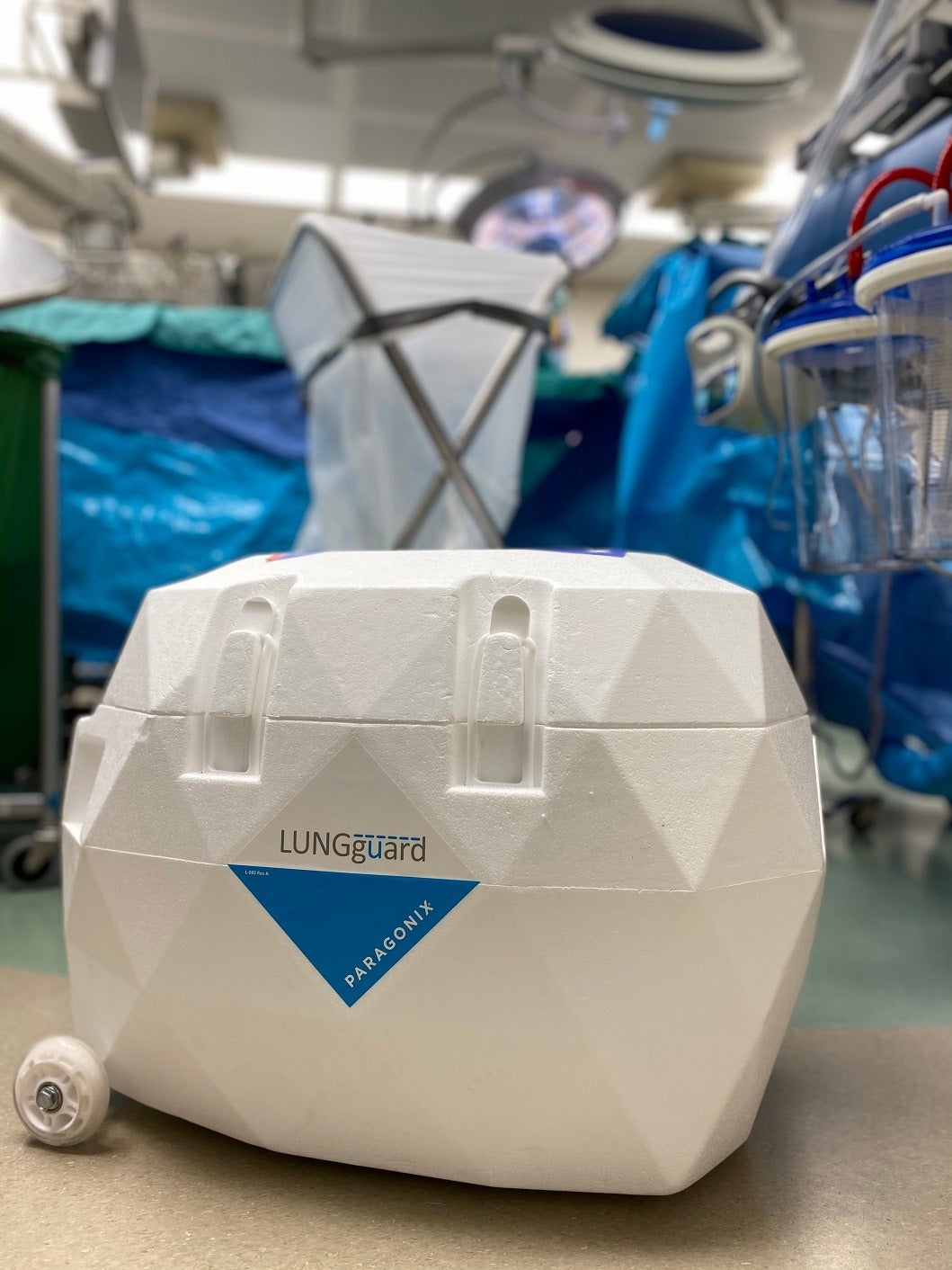
Paragonix Technologies has initiated a global registry, dubbed GUARDIAN-LUNG, to evaluate the impact of lung preservation and transportation methods on the outcomes of transplant surgery.
Open to all lung transplant centres, the study is designed to pool data from the participating lung transplant centres and analyse the differences in clinical outcomes.
It will compare the outcomes in patients who receive donor’s lungs preserved either in the Paragonix LUNGguard Donor Lung Preservation System or stored in a traditional ice cooler.
The study will focus on post-transplant outcomes within the first 48 hours (short term), the first 30 days (intermediate-term) and one-year survival outcomes (long-term), said the company.
Paragonix said that its the only FDA approved cold storage device for donor lungs and it was first used in humans at Duke University Hospital.
Duke University Health System lung transplant research chief Matthew Hartwig said: “This unique registry will provide critical and contemporary data on lung transplant outcomes, with the potential to impact the process for both donors and recipients.
“Our programme sees this registry as an important opportunity to make vast strides in how certain procedural details, including organ transportation, can improve patient outcomes. All programs should be seeking the opportunity to participate and contribute to this study.”
Paragonix said that its LUNGguard System has been designed to provide a controlled environment for hypothermic lung preservation.
The system facilitates real-time digital monitoring through the Paragonix App to safeguard donor lungs throughout the transport journey.
The current study follows the previous GUARDIAN registry that evaluated donor heart preservation using the company’s Paragonix SherpaPak Cardiac Transport System.
According to a recent clinical study, the donor hearts preserved by the Paragonix SherpaPak system showed statistically significant increases in total ischemic time and travel distance.
The company said that its research is aimed at understanding the impact of SherpaPak Cardiac Transport System and LUNGguard Donor Lung Procurement Systems.
Paragonix Technologies CEO Lisa Anderson said: “We’ve invested in these studies to better support the transplant teams and patients by providing insights that may help them in handling the dynamics of the entire operation, from transport to transplant.
“The first results of our GUARDIAN registry for heart preservation and transplantation sets an exciting and optimistic stage for what we can achieve for further supporting lung preservation and transplantation.”






